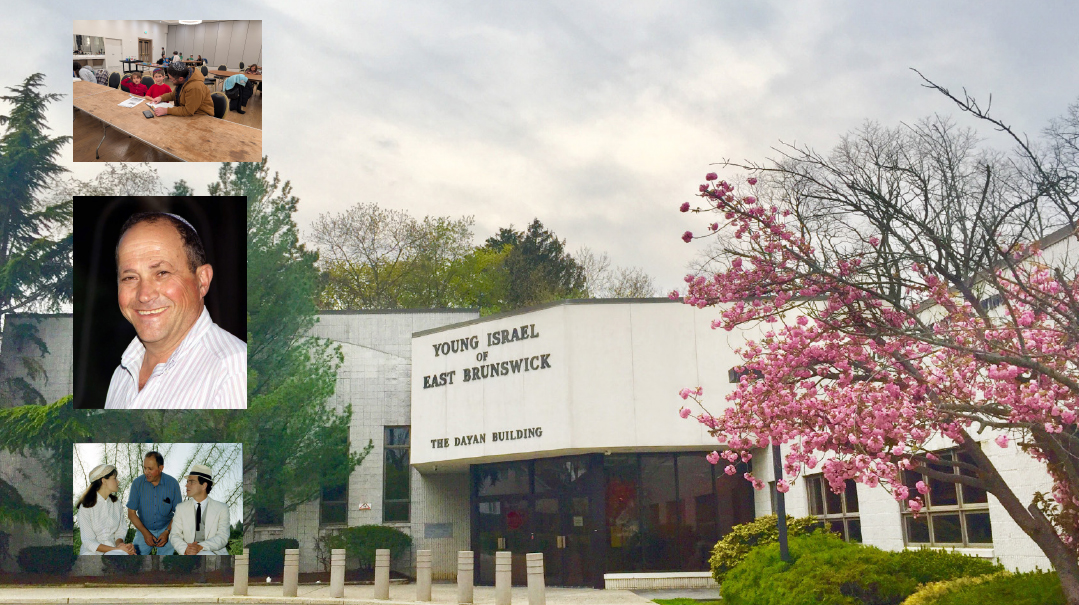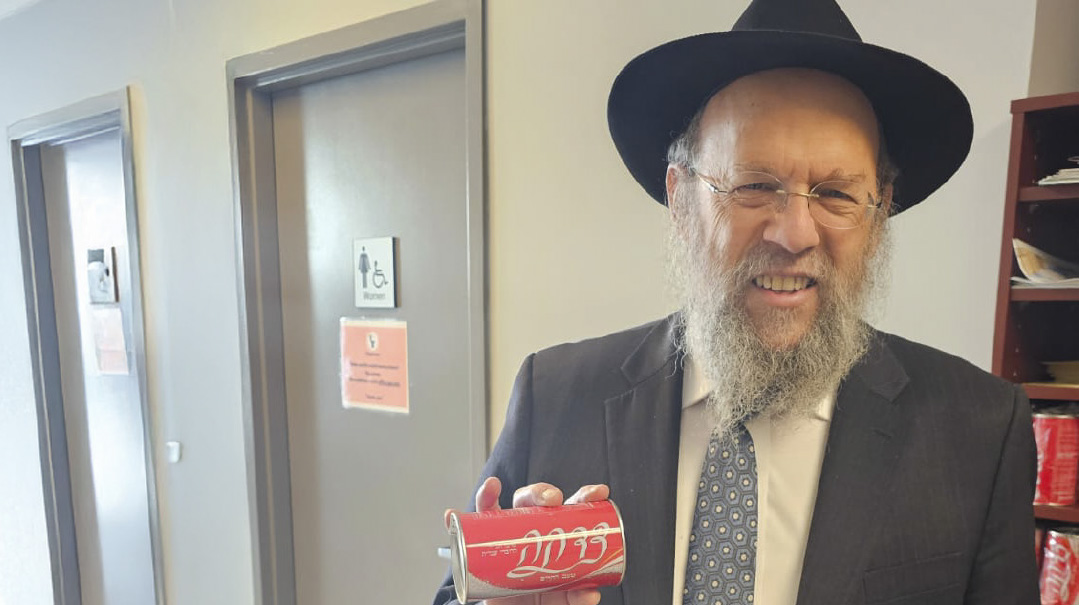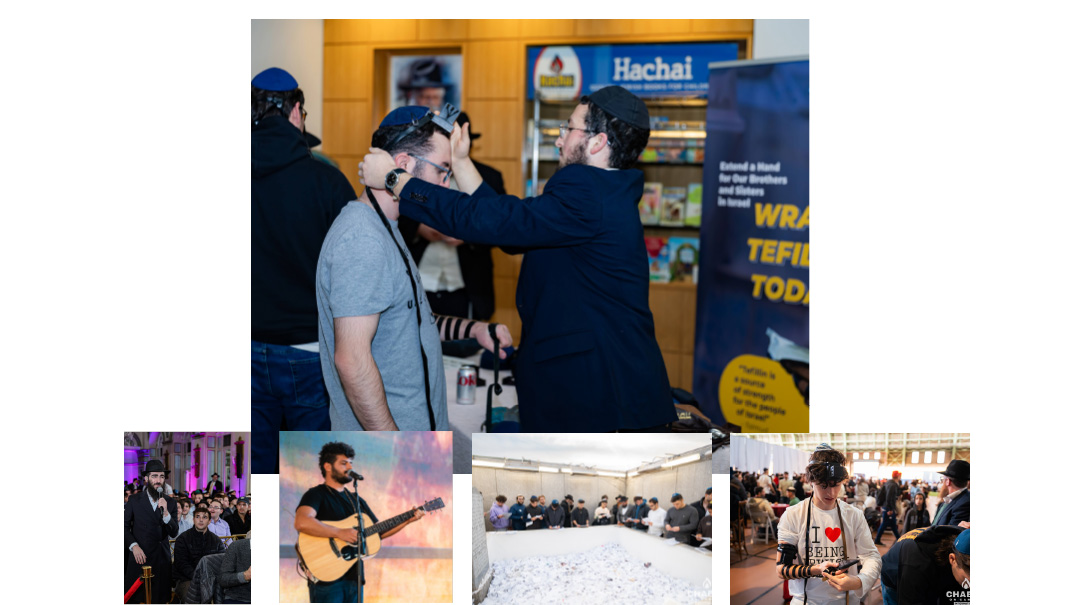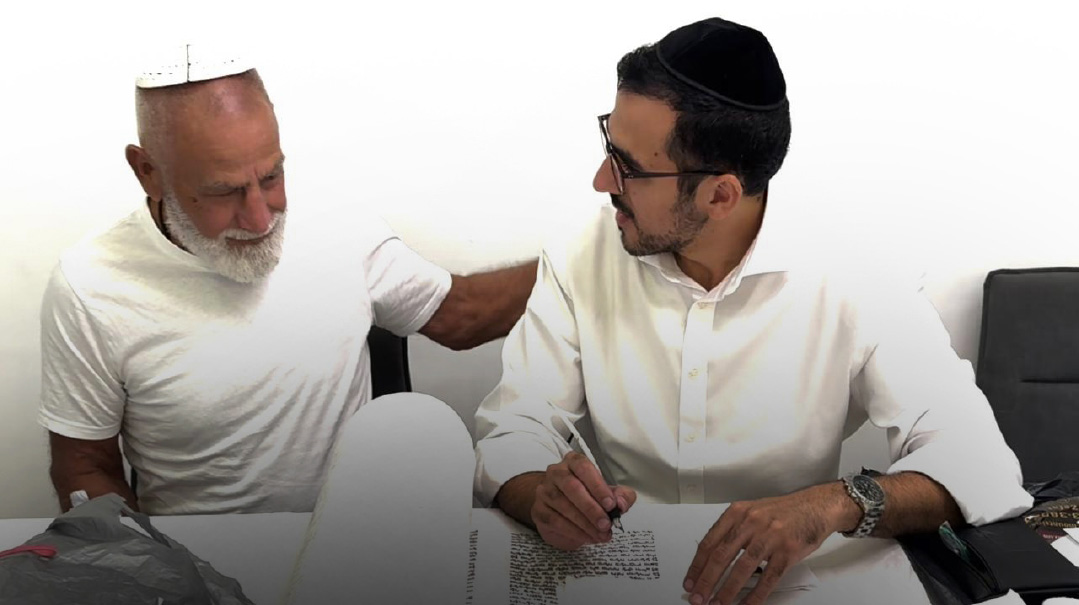War Effort
| July 23, 2024Mission. Each and every one of us, wherever we are, is a soldier with a singular purpose and mission
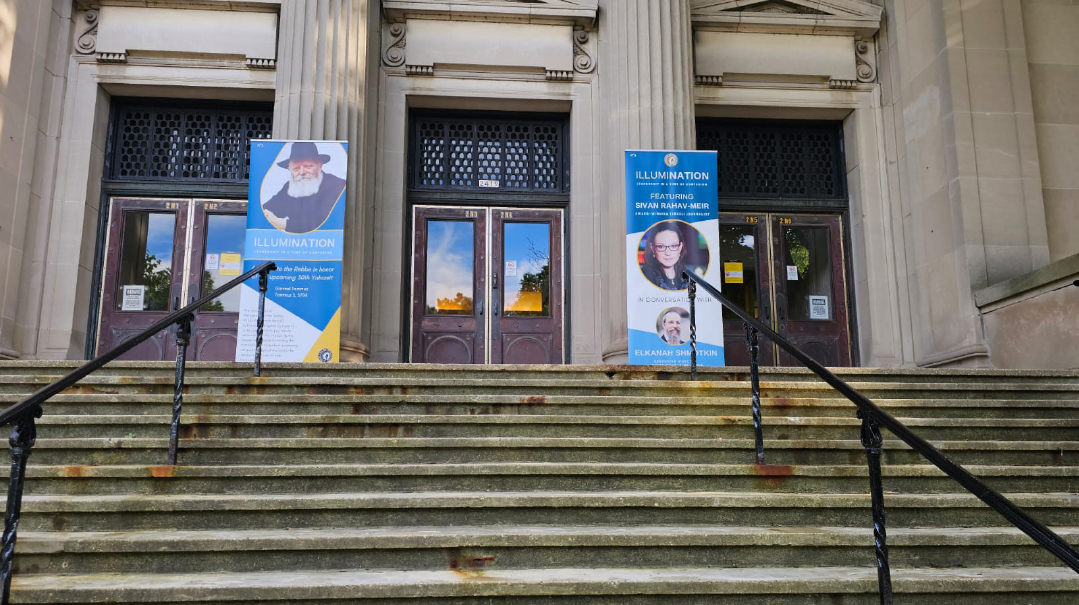
Where: Milwaukee, Wisconsin
What: An event marking Gimmel Tammuz, the 30th yahrtzeit of the Lubavitcher Rebbe
My Takeaway: The Jewish world is experiencing an overwhelming awakening to connect to Yiddishkeit
ON my most recent trip to the US, I went to check out what was happening in Wisconsin — no, not the drama of the National Republican Convention, but rather, two weeks prior, at an event in honor of 3 Tammuz, the Lubavitcher Rebbe’s 30th yahrtzeit. In contrast to all the political news and commentary that’s come out of Milwaukee, I have my own insights to share, things you won’t read about in the media.
Rabbi Yisroel Shmotkin, today the executive director of Lubavitch of Wisconsin, had been sent with his wife, back in 1968, to Wisconsin — one of the early pioneers of the Lubavitch emissaries network, which today has over 4,000 shluchim. While Milwaukee had an active Orthodox community, the rest of the state was pretty much of a religious backwater, yet with his trademark dynamism, Rabbi Shmotkin began to build the dozens of chinuch and chesed institutions within ten centers throughout the state, with numerous dedicated shluchim who make up today’s empire.
His sons include Rabbi Zalman, founder of the Chabad.org website; Rabbi Elkanah, founder of the Jewish Educational Media (JEM) Foundation; and Rabbi Menachem Mendel, executive vice president for Lubavitch of Wisconsin and the shaliach through whom I was able to see all this hard work up close.
On the first day of my visit, I had the zechut to have lunch at the home of the elder Rabbi Yisroel Shmotkin, who had been very close to the Lubavitcher Rebbe, and also to the previous Rebbe, the Rebbe Rayatz. When discussing the situation in Israel and the world, he gave his own deep interpretation. “The problem,” he said, “is that the physical world and Elokus, G-dliness, feel like two separate entities. And the more powerful and promising the gashmiyus becomes, the more difficult it is to reconcile with ruchniyus. We need to resolve this conflict by filling the world with Elokus — and this is the goal of chassidus.”
What followed was a whirlwind tour of lectures and meetings. Here are a few highlights:
At a Chabad-sponsored event at the University of Wisconsin-Milwaukee, I was asked to share my understanding of the Lubavitcher Rebbe’s impact on the recent Gaza war. Only after I began to study the material myself did I discover just how powerful and widespread the Rebbe’s influence still is. To the hundreds of Jews sitting in the audience, I delivered some key points from the Rebbe’s worldview, which he taught over the course of his lifetime, and how they are being expressed today:
Jewish unity. We’re seeing unparalleled solidarity with every captive, combatant, and wounded individual. Although the demonstrations that threatened to split the country before the war have begun again, there is also a newfound understanding that the Jewish people share a common destiny.
Mission. Each and every one of us, wherever we are, is a soldier with a singular purpose and mission.
Hope and optimism. These are the essential ingredients with which to emerge from crisis.
Eretz Yisrael. The understanding that this is the Holy Land that Hashem gave us as our eternal inheritance.
Jewish pride. Our job is not only to fight anti-Semitism (sur me’ra), but we must also be proud that we are Jews and that we have the ability and merit to be able to observe Torah and mitzvos (aseh tov).
Clearly, the only way to defeat anti-Semitism is with more Yiddishkeit. I gave examples of how all over the Jewish world, there has been an overwhelming strengthening in mitzvah observance, such as tefillin, tzitzit, hafrashat challah, and more. I went on to describe the emotionally charged visit of the hostages’ families to the Rebbe’s Ohel, where they discovered serenity, hope, trust, and emunah.
Next up was Rabbi Elkanah Shmotkin, an expert on the Rebbe’s perception of defense and security. Bringing these esoteric concepts down to earth, Rabbi Shmotkin said, “Everyone sitting here in this room is capable of contributing to the security of Eretz Yisrael and of the greater Jewish world. Every positive resolution, every optimistic thought, every shiur or good deed — it all reinforces the spiritual ‘Iron Dome’ that protects us all.”
Hundreds of people who arrived at the auditorium burdened by worry and anxiety stepped out with a renewed sense of mutual responsibility and solidarity.
In addition to meeting many students on campus, I also had the opportunity to meet local journalists, most of whom were non-Jews. Some had no idea of the scope of the horrors perpetrated by Hamas, the numbers of people murdered and taken captive. I started by explaining the most basic facts, and then went up a level. “Absolute evil always struggles against absolute good,” I said, explaining that we — Israel and the West — are fighting a common battle. As one journalist stood up and said, “The anti-Semitism on campuses and the pro-Hamas demonstrations are not the problem of American Jewry or Israel. They’re the problem of all Americans.”
A lovely woman named Chedva Federman was driving me from Milwaukee to Chicago for my return flight to Israel, and mentioned an event she’d attended where everyone was encouraged to “adopt” a hostage and daven for them daily. Chedva adopted Hamas captive Omer Shem Tov. “I was told that he’s twenty-one, and so every morning, before I eat or drink anything, I recite Chapter 22 of Tehillim for him,” she told me. (In Chabad there is a minhag to say the chapter of Tehillim that corresponds to the age that a person will be on their next birthday, i.e., the year they are currently in.)
“Wait, he didn’t turn twenty-two yet, right?” Chedva asked. “Because then, I’d have to be saying Chapter 23.”
I immediately texted Omer’s mother, Shelly, with whom I’ve been in touch and who was heartened to hear about Chedva’s efforts on behalf of her son. Chedva was thrilled that from her car in midwestern America we could message Shelly in Herzliya. And Omer? His birthday is in October, at which time we hope and daven that he will have long returned home, healthy and whole in body and spirit.
(Originally featured in Mishpacha, Issue 1021)
Oops! We could not locate your form.

